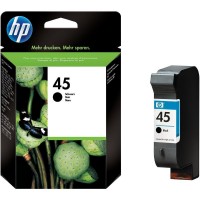The two companies debated in court, with Datel seeking to dismiss the case against it and HP arguing its position against the company for theft of trade secrets in the shape of inkjet chip codes.
Actionable Intelligence reported on the “new developments” in the case. The Recycler reported in June on the trade secrets case launched by HP, which accused Datel of “misappropriating” the OEM’s master key codes for printer cartridge chip security before sharing the codes with clone manufacturers.
The OEM sought $30 million (€22 million) in damages, accusing Datel of “crack[ing] the security used on its ink cartridge microchips” before “shar[ing] the chips’ design and configuration with other companies”, including some that use the chips in “clones” of HP’s 930 and 950 printers’ inkjet cartridges. HP also accused Datel of “selling ink cartridges compatible with HP printers”.
Actionable Intelligence reported that Datel responded to the original complaint, before HP responded, with Datel’s in the form of a motion to dismiss the case. Datel stated that HP’s lack of facts, standing, or evidence that it acquired the means to copy the chips were “improper”, meaning that the case should be dismissed.
The company’s motion stated: “To state a claim for misappropriation of trade secrets … the plaintiff must allege that: ‘(1) the plaintiff owned a trade secret; (2) the defendant misappropriated the trade secret; and (3) the defendant’s actions damaged the plaintiff.’” Datel added that this means HP needs to allege that Datel acquired the information through “improper means”, but that reverse engineering is “specifically excluded from this definition”.
Additionally, Datel states HP only alleged that it “cracked” the security features on the chips, which it adds “constitutes classic reverse engineering, which is entirely permissible under California’s trade secrets statute”. In terms of the case lacking standing, Datel adds that HP would have to “own the trade secrets”, and in this situation, ST Micro does, meaning HP doesn’t have a position to “assert misappropriation of trade secrets”.
Finally, Datel stated that there are no factual allegations to support the use of a development kit to access the codes, and that any ST Micro customer would be at risk of hacking if Datel was able to do what HP is accusing it of. Conversely, it claims that HP has “not taken sufficient efforts to maintain its secrecy” if only a development kit widely available from ST Micro would be able to crack its chip codes.
HP’s response saw it claim that “misappropriation includes acquisition of a trade secret by improper means, which is exactly what Datel did here […] It gained possession of a development kit that is made by the same company that manufactures HP’s chips, and then, even though it knew that it was not authorised to have the development kit, used the kit without authorisation to hack HP’s printer chip and acquire HP’s trade secrets contained therein”.
It added that reverse-engineering the chips doesn’t exempt Datel from liability, as California’s Uniform Trade Secrets Act “does not exempt from liability unfair reverse engineering carried out through improper means […] HP has pled that Datel stole HP’s trade secrets by using a development kit that it was never permitted to have in the first place. Any reverse engineering was therefore carried out through ‘improper means’”.
Responding to the claim regarding ST Micro, HP called this a “red herring”, as Datel “used an improperly acquired development kit”, which does “not somehow render the trade secrets encrypted on the chips the property of ST Micro”. It added that it is not required to “plead every technical detail of how Datel used the development kit to steal HP’s trade secrets”, as it has pointed out that the kit “gave Datel access to the inner workings of the chips”, including those that “disable the security”, and so it is “more than ‘plausible’ that Datel’s team of hackers could then access HP’s trade secrets contained on the chips”.
The OEM asked the court to either deny the motion to dismiss or grant HP leave to “amend the complaint”, said Actionable Intelligence, in the event of the court “grant[ing] the motion to dismiss because of the absence of some fact”. The news outlet gave its perspective that whilst HP has been “willing to ‘play nice’ and extend fair warning to third-party chipmakers”, including at Remanexpo in Germany earlier this year, it seems HP “is taking a much tougher stance against third-party chipmakers it feels are using unethical and illegal means to develop third-party chipsets”.

